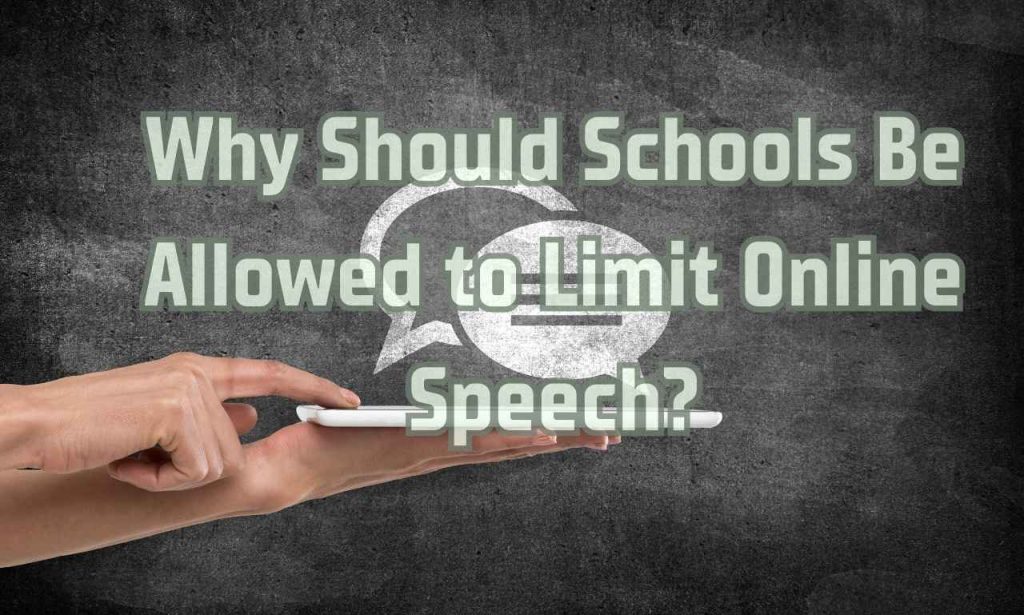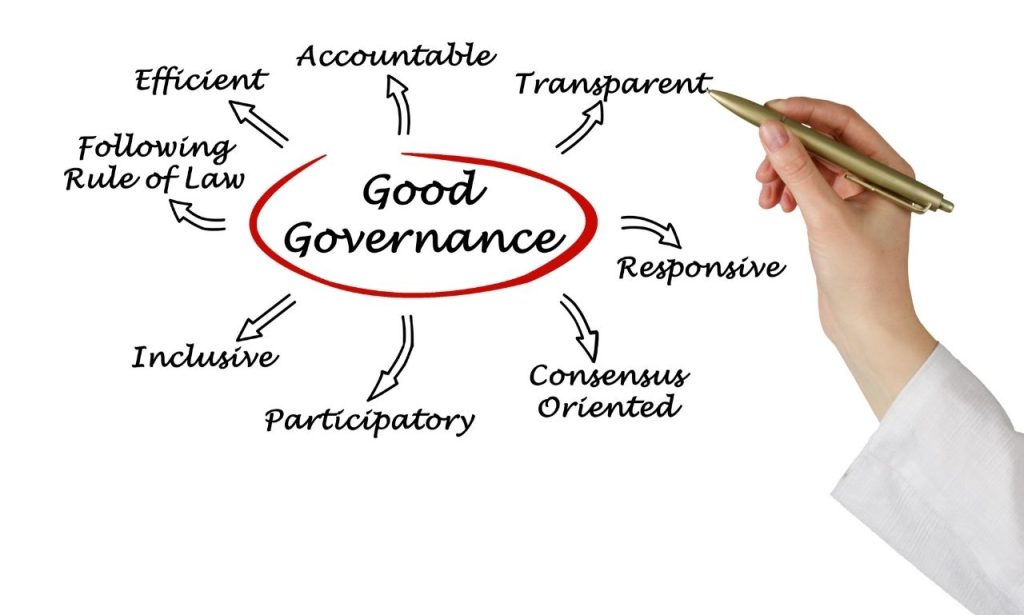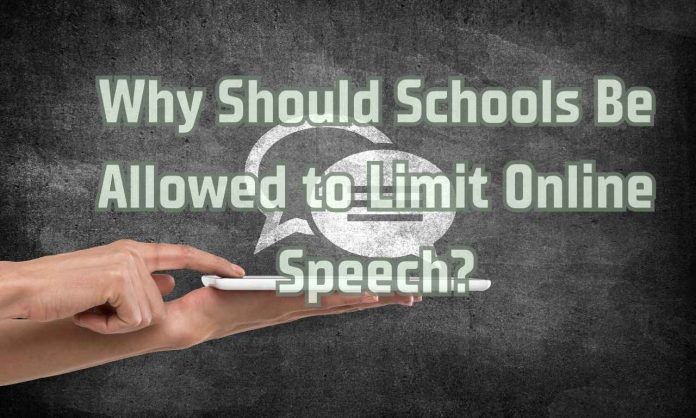School is more than a place to learn algebra or memorize the names of historical figures. It’s where students form friendships, discover their passions, and develop their identities. But what happens when the digital space—beyond the school gates—bleeds into the learning environment? Should schools limit online speech? Let’s dive in.
The Importance of Distinguishing Online and Offline Speech

The digital world and the real world are blurred, almost inseparable. With just a few taps, a message or photo can travel around the globe in seconds.
- Online vs Offline: Online speech has a lasting impact. Unlike a whispered joke in the classroom, a post online can exist forever—altering reputations, friendships, and even school life. Schools must navigate this terrain where “off-campus speech” still impacts the “on-campus” atmosphere.
- Consequences Without Borders: A comment made online might be miles away, but the ripple effect of bullying, hateful speech, or even misinformation spreads right back into the classroom, cafeteria, and gym. Schools need tools to tackle this crossover.
Understanding the First Amendment
Free Speech Rights for Students
Freedom of speech is foundational in the United States, but it doesn’t mean “anything goes”—especially for students.
- The Schoolhouse Gate: In landmark cases like Tinker v. Des Moines, courts established that students don’t “shed their constitutional rights to freedom of speech or expression at the schoolhouse gate.” However, this doesn’t mean they’re completely unrestricted.
- Balancing Rights and Responsibilities: Freedom of expression is vital, but so is maintaining a safe learning environment. Sometimes, limitations on online speech can be essential to prevent substantial disruptions.
Educator Responsibilities
- Maintaining Order: Teachers and administrators have an obligation to ensure safety at school. When online speech threatens school operations or creates disturbances in school, limiting such speech becomes essential.
- Preventing Emotional Harm: The potential for emotional harm from digital technologies is significant. Schools have the responsibility to prevent students from being victims of cyberbullying and maintain a healthy, amiable atmosphere.
Impact on Public Discourse
Social networking sites have transformed how students communicate—it’s not just chatting with friends, it’s creating content that reaches hundreds, maybe even thousands.
- The Viral Nature of Speech: A middle school student’s comment can potentially go viral. The impact of a single post is powerful enough to create a disruption at school, affecting not just the students but the entire school environment.
- Freedom and Consequence: Students must understand that while they have the freedom of speech, it comes with consequences. A racially charged slur or a threatening message isn’t just “free speech”; it’s harmful.
Challenges of Digital Communication

- Permanent Records: Unlike an argument on campus, online conflicts stay documented. A mean-spirited comment, a threat, or an offensive meme can be screenshotted, shared, and archived.
- Blurred Boundaries: Where does “off-campus speech” end, especially when it affects fellow classmates the next school day? Schools face the challenge of discerning when it’s necessary to step in.
Reasons for Limiting Online Speech in Schools
Maintaining a Positive Learning Environment
A positive learning environment is key to a school’s success. When online interactions cross a line and lead to a hostile or uncomfortable school climate, intervention is necessary.
- Limits on Students for School Safety: Allowing unchecked online speech can lead to bullying, mental health issues, and emotional harm, compromising the safety at school and disrupting the learning experience.
- School Policy and Digital Boundaries: School districts and school boards are increasingly working on policies that address students’ off-campus electronic speech—drawing boundaries that ensure school operations are not hampered by online drama.
Preventing Bullying and Harassment
- Cyberbullying vs. Traditional Bullying: Unlike traditional bullying, cyberbullying can occur anytime and anywhere, often without school supervision. Victims of cyberbullying suffer not just at school but at home, affecting their well-being.
- Substantial Disorder: Limiting online speech that contributes to a substantial disorder ensures students can focus on learning without fear of emotional or physical harm.
Balancing Safety and Expression
- Balancing Act: Balancing freedom of expression with the need for a safe school environment is challenging. Schools must ensure students feel heard while also preventing speech that places students in harm.
- Freedom of Speech Stated, But Limited: Freedom of speech in school isn’t absolute, especially when that speech creates victims, be it through campus cyberbullying, hate speech, or any form of harassment.
Case Studies and Legal Precedents
Analyzing Levy v. Mahanoy
In Levy v. Mahanoy, a high school cheerleader expressed frustration off-campus, using profane speech on social media. The Supreme Court ruled in her favor, emphasizing that while schools can regulate certain off-campus speech, they need solid grounds to do so.
- The Complexity of Off-Campus Speech: This case demonstrated the complexities involved when determining whether schools have overstepped. The ruling emphasized that schools must respect students’ rights but may intervene if the speech causes real disruption.
Other Relevant Court Cases
- Bethel School District v. Fraser: This case revolved around a student’s lewd speech during a school-sponsored activity. The ruling allowed schools to prohibit vulgar and offensive language, showing that freedom of speech doesn’t always protect disruptive behavior.
- Hazelwood School District v. Kuhlmeier: The Supreme Court allowed schools to limit speech in school-sponsored newspapers if it’s inconsistent with educational objectives, emphasizing school authority in ensuring appropriate content.
Perspectives from Educators and Organizations
National Education Association (NEA)
The NEA generally supports the idea that schools should have the authority to regulate student behavior, including online speech, to maintain order and ensure a safe environment. Educators understand the impacts of harmful speech and push for reasonable limits on student expression to create positive school climates.
American Library Association (ALA)
The ALA, on the other hand, often advocates for minimal censorship, even in schools. They argue that censorship in schools can go too far, and students need exposure to diverse ideas. However, they also recognize the importance of keeping students safe from harassment and bullying.
National Coalition Against Censorship (NCAC)
The NCAC emphasizes that limits on students’ freedom of expression should be precise and justified. They stress that while safety and order are important, overly broad policies could stifle student voices and impede their growth.
Strategies for Responsible Governance
Crafting Clear Policies

- School Policy is Key: Clear, specific school policies are vital to avoid misunderstandings. These policies should address what constitutes inappropriate online behavior, both on and off-campus.
- Working With School Districts: School administrators and school districts need to communicate these policies clearly to students and parents, ensuring everyone understands the boundaries of online freedom.
Educating Students on Digital Citizenship
- Digital Awareness: Educating students about digital technologies, appropriate online behavior, and potential consequences is crucial. Empowering students with knowledge can prevent many of the issues schools face.
- Promoting Accountability: When students understand their online actions have real-world repercussions, they’re more likely to act responsibly.
Implementing Support Systems
- Counseling Services: Schools should provide counseling and support services for students who are victims of online harassment or bullying. These services can offer students a safe place to express their concerns and seek help.
- Parental Involvement: Engaging parents in discussions about digital safety and appropriate online conduct is also critical. When schools and parents work together, students are more likely to understand the importance of responsible online behavior.
School Partnerships with Tech Companies
- Monitoring Tools: Schools can work with tech companies to implement tools that monitor online speech for harmful content. These tools can help identify issues before they escalate into bigger problems within the school environment.
- Educational Initiatives: Tech companies can also support educational initiatives, providing resources that teach students about the impact of their online behavior.
The Future of Online Speech Regulation in Schools
Adapting to Evolving Digital Landscapes
- New Challenges, New Solutions: With each new social media platform and communication tool, schools must adapt their policies and approaches. From chat rooms to TikTok, the landscape keeps shifting.
- Collaboration with Tech Companies: Collaboration with tech companies could help schools address harmful online behavior more effectively.
Promoting Open Discussion and Respect
- Encouraging Dialogue: Schools should encourage discussions about freedom of speech, respect, and the impact of words. This not only promotes understanding but also reduces the chance of people getting hurt by careless comments.
- Teaching Conflict Resolution: Teaching students how to resolve conflicts without resorting to harmful speech is key. They need the tools to disagree respectfully.
Preparing Students for the Digital World
- Digital Literacy: Digital literacy is becoming increasingly important. Students need to understand how to navigate the digital world safely and responsibly. Schools can play a crucial role in equipping students with the skills they need to critically evaluate information online and communicate effectively.
- Responsible Use of Electronic Devices: Encouraging responsible use of electronic devices during school hours can help maintain focus on learning while minimizing opportunities for online conflicts.
Legal and Ethical Considerations
- Continuous Review of Policies: School policies regarding online speech should be regularly reviewed and updated to reflect changes in technology and society. This ensures that policies remain relevant and effective.
- Ethical Implications: Schools must also consider the ethical implications of limiting online speech. While safety is a priority, it’s essential to avoid overreach that could infringe on students’ civil rights or stifle their ability to express themselves.
Conclusion
The question of whether schools should be allowed to limit online speech doesn’t have a one-size-fits-all answer. Balancing freedom, safety, and responsibility is a delicate act. Schools must create environments where all students feel safe—and sometimes that means setting limits on online speech. The key is to implement clear policies, educate students about digital citizenship, and ensure that any limits on speech are fair, justified, and in the best interests of the school community.
Also Read: Why Do Schools Never Punish Bullies?
FAQs
Yes, but only if the speech causes substantial disruption at school or affects the safety of the learning environment.
Students do have freedom of speech, but it can be limited if it impacts school safety or operations.
Cyberbullying includes using digital devices to harass, threaten, or demean others. It’s often grounds for school intervention.
Schools can intervene if a social media post has a significant impact on the school environment or violates specific school policies.
